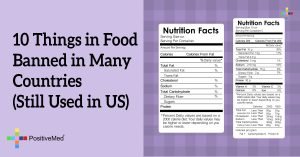
Here’s One Thing About You That Makes You Twice As Likely To Cheat
One of the biggest problems couples face is infidelity. Assuring yourself your partner won’t cheat or dealing with it after it’s happened can be extremely challenging as nearly 30% to 60% of married individuals in the US can tell you. According to a study by Buss & Shackleford, this is the number of people who are likely to have a spouse cheat on them at some point during the course of their marriage. In fact, the researchers conclude that this percentage is probably on the conservative side given that half of all marriages now end in divorce and people are more likely to engaged in extramarital $ex when their relationship is falling apart.

However, there’s at least one predictor many people wonder about when questioning whether their spouse would ever cheat: is my husband or wife more likely to cheat because his or her parent cheated?
RELATED ARTICLE: 10 Signs Your Partner Is Cheating on You
An old adage suggests like father like son and like mother like daughter. However, many wonder if this saying holds true for the likelihood of cheating. Apparently, it’s possible that a parent’s cheating behavior can make their child more likely to repeat the pattern, but not for the reasons one may believe.
Much research has been done into the importance and impact of the parent-child bond on children of all ages well into their adulthood. Dealing with infidelity often causes older children to feel powerless or worry about instability in their own family. Likewise, it can be difficult for them to deal with as regards peers.
Meanwhile, younger children may have the vision of their parents as perfect destroyed far before it ought to be. While these emotional struggles certainly don’t mark children of people who cheat to follow in their parents’ footsteps, it’s important to make sure children involved in an infidelity-torn home get the proper guidance and help to deal with any feelings about the incident.
RELATED ARTICLE: 8 People Who Are Going To Cheat On You
Children who shove aside (rather than deal with) negative feelings may go on to unconsciously repeat the same mistakes. Why? Sometimes children can go on from any negative parental experience, not just cheating but problems like domestic abuse or alcoholism, to develop what’s called a reaction formation. This means that “… Their development is not about themselves, but about a reaction to their parents,” according to one researcher. These children sometimes only learn what not to do instead of learning what they should do, making it more likely they’ll do exactly that because they don’t know what they should be doing instead.
Some research suggests that boys who have fathers that cheat may be more predisposed to the behavior than girls because young men often grow up learning from their father figure what they can get away with, but other studies don’t find any difference between the two genders suggesting that seven out of ten women who have mothers that cheated will do the same one day, which is a statistic comparable to men and their sons.
While not enough longitudinal studies have been done to really confirm whether men or women have a higher predisposition to cheating if their same gender parent did, research does show one thing: children who have parents who cheat are not destined to follow their parents’ mistakes. By working to make a new model for themselves through counseling, working with a marriage coach, or looking for role models of the same or opposite gender who don’t cheat, children of infidelity-torn marriages are much less likely to make the same mistakes.





